
15 minute read
Hot Beverages
Out-of-home trends are still key
In the convenience channel, the hot beverages category is growing at 19% year on year, which is more than double the rate achieved in the grocery channel (Kantar).
Atotal of 97.6% of households buy into hot beverages each year and the category as a whole is now worth £2.4 billion (Kantar). One of the biggest trends is for consumers to try to replicate the ‘coffee shop’ experience at home, and suppliers have responded with relevant NPD and marketing activity.
Coffee
The Nescafé brand accounts for 31.3% of the total spend in hot beverages across the convenience channel, and over 40% of this value comes from the top five selling products, reports Nestlé. These products are different pack formats of Nescafé Original, Nescafé Gold Blend and Nescafé Azera Americano, making these ‘must stock’ items. Wholesalers can provide extra value for their customers with these products by selling the price-marked variations, advises the company. It is also important to take note of pack preferences: with consumption in-home being far higher than in previous years, shoppers are choosing larger pack sizes (ACS).
Wholesalers can maximise profits by providing an offering across all segments of tea and coffee, adds Nestlé. Key segments that are growing include roast & ground coffee, coffee pods and origins instant coffee (IRI).
Recent NPD from Nestlé includes Nescafé Azera craft coffee, brought to the market through a collaboration with Grindsmith coffee roasters. Nescafé Gold has also focused on the roasting stage of coffee with the introduction of Roastery Collection in Light and Dark variants. This new product development is designed to bridge the gap between the premium and super-premium coffee segments.
Taylors of Harrogate has redesigned the packaging for its core range, which includes its well-known Rich Italian and Lazy Sunday blends. After extensive customer research, the priority for the brand was to ensure easy navigation and recognition on shelf by expressing the brand’s heritage, clearly differentiating ground and beans, and simplifying the messaging on pack. Taylors of Harrogate is now the UK’s No.1 coffee bags brand (IRI) following the introduction of boxes of 80 individuallywrapped Coffee Bags for hotels, travel and workplaces in 2019. Each coffee bag contains fresh roast and ground coffee and works just like a tea bag, brewing in two minutes. The company’s multi-channel advertising campaign is expected to drive further awareness and demand for this product.
“We know that there isn’t always the equipment or time to make roast and ground coffee, and our coffee bags offer a convenient solution,” says Natalie King, out of home account manager. Consumers can have a proper coffee no matter where they are and don’t have to compromise by drinking instant.”
Caterers know that the foundation of a good coffee is high quality beans, says King. “At Taylors of Harrogate, we only buy speciality grade coffee, which is sourced from the world’s best growers. Our Espresso Coffee Beans are ideal for making popular coffees like lattes, flat whites, espresso shots and Americanos.”
Last year, Jacobs Douwe Egberts (JDE) added Barista Editions to the Douwe Egberts out-of-home espresso bean portfolio. There are two products made from 100% Rainforest Alliance Certified Arabica beans.
Signature Espresso, described as a “real all-rounder”, is medium dark roasted with notes of dark honey and citrus fruits. Rich Espresso is an “intense and full-bodied blend roasted to pack a punch”. It is dark roasted with notes of sticky treacle and almonds.
The packaging features easy to follow barista recommendations for dosage, storage and serving tips, supported by online training videos that give baristas “the confidence to serve incredible coffee”.
In addition, the Douwe Egberts seal comes with quality assurance, including how the company sources its beans. 100% Rainforest Alliance Certified means that each bean is grown and picked from farms supported by sustainable farming practices that help to protect forests, improve
farmers’ livelihoods, protect the human rights of farm workers, and help farmers mitigate and adapt to the climate crisis. At-home consumption of single-serve coffee grew by 23% in value in the year to 26 December, and these products now account for 18.6% of total coffee sales (Nielsen). “This is driving the trend of premiumisation within the coffee category, with consumers looking for a higher quality experience at home,” says Hannah Morris, category team leader at Jacobs Douwe Egberts, which offers Tassimo and L’OR capsules.
“Single-serve coffee and machines are providing the perfect solution during the pandemic for those looking to get that high-quality coffee as part of their morning routine.”
For consumers without a coffee machine, Kenco Duo comprises two ingredients in a fully recyclable pot, enabling consumers to craft their chosen beverage. The most recent addition to the Kenco Duo range is an Unsweetened option. Kenco Duo has 3.2% penetration of the entire speciality category (Kantar).
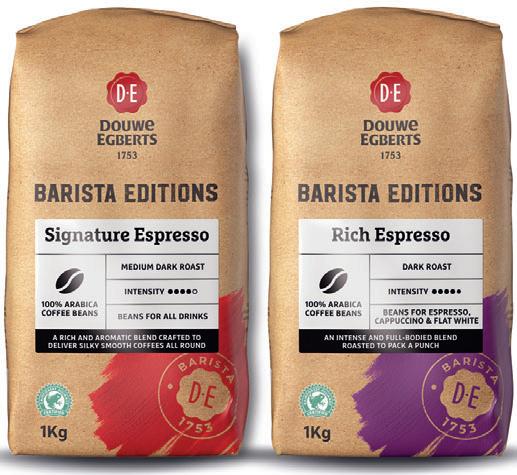
Morris emphasises that brands play an important role across all coffee formats, from instant to capsules, and points out that this is especially true in the convenience channel. “Price is less important for consumers purchasing roast and ground coffee and coffee capsules; therefore, there is an opportunity to encourage trade up to premium brands, boosting average spend,” she says.
Rombouts is introducing home compostable filters across its One Cup Filter Coffee range, a development that will save 170 tonnes of plastic annually. The new eco-friendly filters are currently available for the Original variant (rsp £3.39), with a roll-out during the year for other variants. The filters and lids are made from bagasse, a by-product of natural sugar cane production. The inner film, essential to ensure the freshness of the product, is fully recyclable and the outer packaging is recyclable card. Sales director Simon Remmer comments: “With more people spending time at home than ever before, offering them a quick and easy way to make a quality cup of real coffee is a no-brainer. But at the same time, we can’t shy away from the coffee industry’s impact on packaging waste, particularly as it remains the second most consumed drink in the UK, after water.
Andy Dixon drives Lyons forward
Lyons Instant Coffee, a heritage British brand that dates back to 1894, has seen a resurgence under new ownership, reports Andy Dixon (pictured), who recently joined the business as wholesale sales lead after years of experience working with Kraft/Mondelez and JDE.
Lyons Instant comprises a full range of coffees – powder, granules, freeze dried and whole bean instant –as well as wider selection of coffee mixes and flavours. The performance of Lyons granules has been very strong over the last 12 months, up 57% (Kantar).
Jars, bags and tins are available, and a stick product will be launched shortly. Lyons Rich Roast Granules, Lyons Gold Roast and Lyons Decaffeinated will all be produced in this format, with 500 sticks per case. Lyons coffee comes in non-pricemarked packs and PMPs, with the PMPs offering value price points and shared margins approaching 40% at the rsps of £1.99 for Lyons Gold Roast Freeze Dried and £1.59 for Lyons Rich and Lyons Mellow. Dixon intends to drive the brand in cash & carry/delivered wholesale, foodservice and vending, and Lyons is able to offer flexible delivery solutions dependent on customer needs.
“We are a family company and feel a strong sense of responsibility to help protect the environment for future generations.”
Coinciding with the launch is a wave of marketing activity, including advertising, sampling, digital, social and PR activity to reach mainstream shoppers across the UK.
Following the success of its catering coffee range, Romana Caffé was asked by many of its customers about retail formats. As a result, just over a year ago, the company introduced two products: 100% Arabica ground and 100% Arabica beans in 250g packs. The company subsequently expanded the selection to feature 11 types, including an organic fairtrade variant. For foodservice, Romana Caffé’s bestselling lines are Luxury black label 1kg and Roaster’s Pride 1kg. In the next few months, a 6 x 1kg case will be introduced. The company works with four different roasters for its products. In total it offers 17 different blends from selected sources in Southern America, Africa and Asia. A total of 73% of coffee shop consumers believe that adding a syrup to their drink enhances the overall drinking experience. In addition, 55% of consumers are more likely to try a new flavour of drink if they recognise the syrup brand used in it (Monin and CGA).
Monin advises wholesalers to support outlets by providing them with the tools they need to make their offering stand out, such as limited time offers and seasonal varieties.
“To maximise sales, promotional and concept drinks must be included as ‘hero’ items on the menu. Specials boards can also be used to highlight limited editions and work well when placed at the point of sale. Social media is also key for promoting specials, especially via Instagram if they offer visual appeal,” says Lee Hyde, beverage innovation manager.
Tea
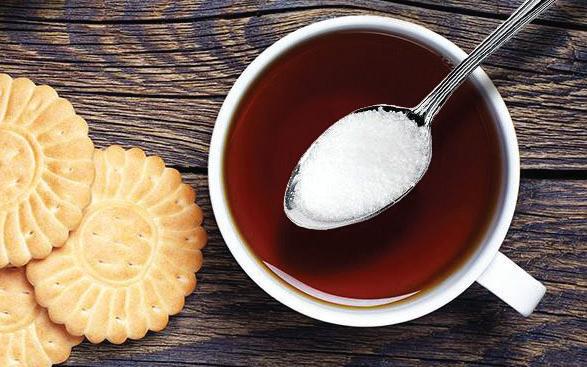
The opportunities for increased tea occasions during the past year have benefited sales. People have renewed their love of tea, with tea sales up by 5.9% in value and 3.1% in volume in the total market (Nielsen).
Among tea brands, Tetley, from Tata Consumer Products, claims to have maintained its position of having the largest number of buyers and the greatest household penetration.
Although fruit & herbals and teas that tick the healthy lifestyle box are important areas to explore, everyday black and everyday decaf still account for the majority of sales, points out Parminder Walia, category development manager. In the convenience channel, everyday black tea generates 83.9% of overall tea sales, while everyday decaf accounts for 5.9% (Nielsen). Nearly 40% of all decaf tea buyers buy Tetley, notes Walia. A total of 60% of tea drinkers are now drinking more than one type of tea (Nielsen). Volume sales of green tea are up by 16.5% in total impulse (Nielsen). In the green tea segment, Twinings is the No.1 brand followed by Tetley. Meanwhile, fruit and herbal teas are particularly popular among 18-24s, with 39% regularly choosing herbal tea and 26% a fruity brew (Nielsen). Tata has a full programme of activity as part of its investment behind the Tetley brand in 2021 which will see the company adapt the way it engages with different groups to create desire for tea and drive sales. “Tetley has more social media followers than any other tea brand, and therefore digital marketing has a prominent role, supported with traditional advertising,” says Walia.
Tata’s commitment to sustainability will take a prominent role this year too, with more steps taken to reduce plastic and improve recyclability.
The importance of stocking the best-sellers in the tea category is also emphasised by Natalie King, out of home account manager at Taylors of Harrogate: “Standard black tea continues to perform well, with both value and volume in growth. Not only is Yorkshire Tea driving the majority of this growth, but we are also the No.1 tea brand (IRI), which makes us an essential wholesale listing.”
Decaf tea is also achieving good growth, with value sales up 10.9% (IRI). “We think this is down to consumers drinking more tea at home and expanding their repertoire as a result,” says King. Yorkshire Tea Decaf has grown by 12.6% in the latest 12 weeks (IRI).”
Stocking price-marked packs of tea can help boost sales, she adds. “PMPs stand out on shelf and encourage purchase by helping to communicate value and overcome the perception that convenience stores are more expensive than supermarkets.”
A total of 28% of customers are dissatisfied with the tea that they are served out of home, and this dissatisfaction is mainly due to taste, strength and brand (YouGov). “Yorkshire Tea is the only major black tea brand to offer the same strength across all products regardless of where it is drunk,” King points out.
The importance of sustainability has been recognised by Taylors of Harrogate: in 2019 it celebrated becoming 100% CarbonNeutral from field to shelf. “We’re proud of the proper way in which we achieved this, by setting up projects that not only offset our carbon footprint but that also improve the lives and livelihoods of our suppliers,” says King.
In addition, Taylors of Harrogate continues to make good progress in eliminating oil-based plastics from its packaging. In line with the UK Plastics Pact, one-fifth of UK Yorkshire Tea teabags are now plant-based, and the company is on track to have switched the majority of these by mid-2021.
Typhoo Tea is aiming to re-engage shoppers using a campaign that reinvigorates its ‘bold personality’. “The plans we are putting in place will see the biggest campaign of Typhoo Tea’s recent history come to life, and will not only keep those loyal consumers buying more, but will bring new shoppers into both the brand and the hot beverages category,” says Melody Chapman, sales & marketing director.
“All of our upcoming brand plans are being developed to work alongside our current strategy to reinvigorate Typhoo Tea’s retail distribution in the convenience channel.” Chapman points out that shoppers are on the look-out for quality brands that they trust and that also provide good value for money. Typhoo Tea is currently available in £1 (40s) and £2 (80s) PMPs. Typhoo Tea Gold (80s), which was awarded two stars in the Great Taste Awards 2019, is also now available in the convenience channel in a pricemarked format.
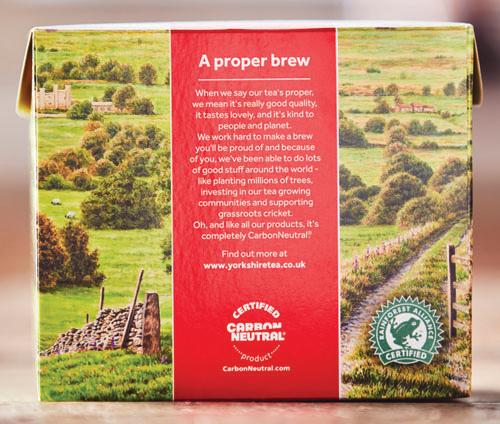

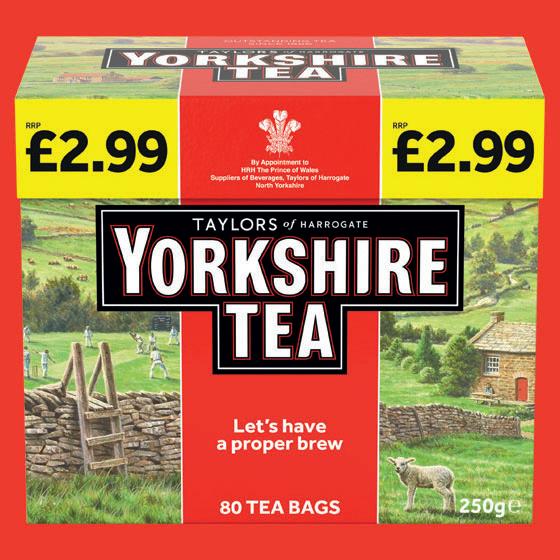
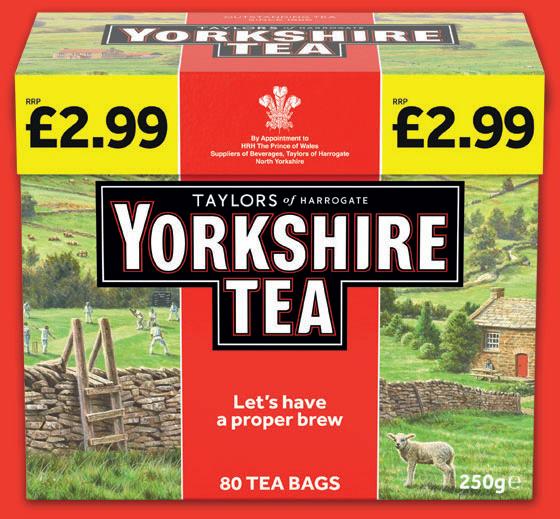

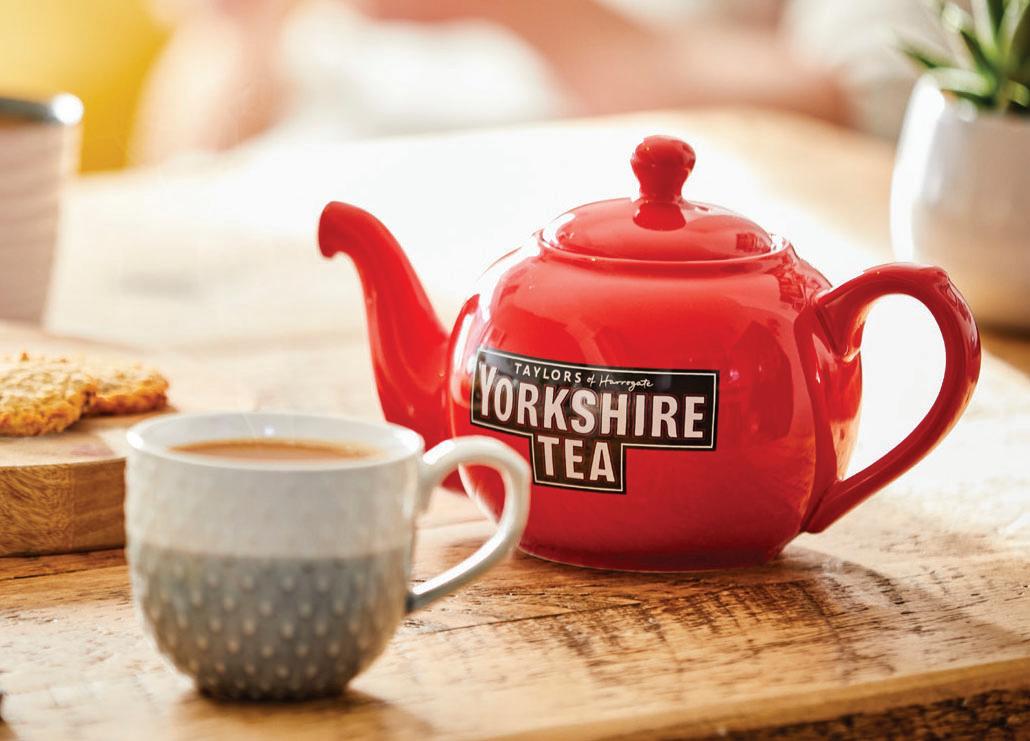

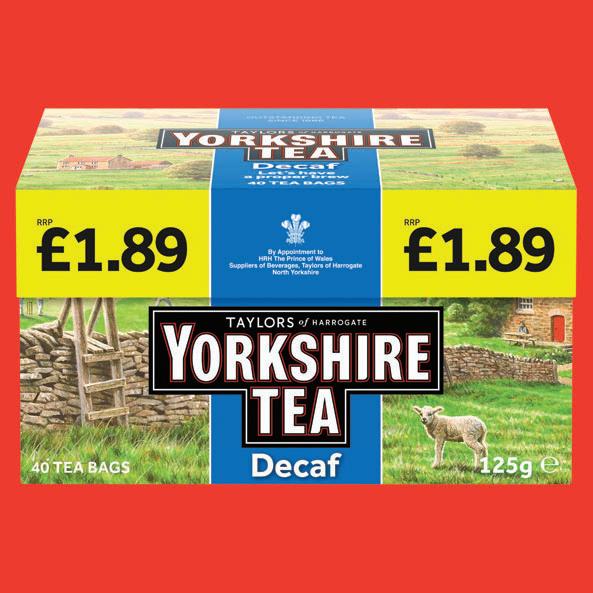

product

Ingredients supplier Henley Bridge is expanding its offer into premium hot beverages by securing sole UK exclusivity on a number of brands. These include Dilmah from the premium Sri Lankan tea producer. The only international tea brand owned by tea growers, it is picked, perfected and packed at the Dilmah Tea Gardens in Ceylon. The range includes traditional speciality, gourmet and premium teas, herbal infusions, pure Ceylon green teas, flavoured teas, spiced chais, organic tea, the Dilmah Exceptional range and an exclusive Teamaker’s Private Reserve.
Launched in 1988, Dilmah is described as the world’s first genuinely ethical tea brand: 15% of all pre-tax profits directly benefit people and the planet through a range of initiatives.

Hot chocolate
Hot milky drinks was the fastest growing segment within hot beverages in 2020 with growth of 13%, predominantly driven by new shoppers and an increase in volume purchased by existing shoppers (Kantar). Hot chocolate represents 66% of the hot milky drinks segment and is worth £137 million (Kantar).
Sales of Galaxy Hot Chocolate, from Mars Chocolate Drinks & Treats, showed growth of 15.8% year on year, while Maltesers Instant Hot Chocolate was up by 10.1% (Kantar).
Within convenience, Galaxy Instant Hot Chocolate (200g) and Maltesers Instant Hot Chocolate (180g) and PMP jars are ‘must stock’ skus, says the company. They are available from Aimia Foods. In August last year, MCD&T redesigned its Maltesers Hot Chocolate products, creating synergy on-shelf with the Galaxy Hot Chocolate range.
Hot chocolate pods are another growing segment within the hot milky drinks category and now account for 15% of sales (Kantar). MCD&T claims that its Galaxy Hot Chocolate Pods, which are compatible with Dolce Gusto machines, are driving the growth of pods at +26.6% year on year (Kantar).
Michelle Frost, general manager, says: “Pods have proven really popular with consumers. Continued innovation within the category is not at the cost of other hot chocolate products, but is attracting new millennial customers.”
To tap into the consumer focus on health and wellbeing, Mondelez International last year launched a reduced sugar variant of Cadbury Hot Chocolate, the UK’s No.1 hot chocolate brand (Nielsen). Available in 280g jars and with no artificial sweeteners, Cadbury Hot Chocolate Reduced Sugar has 30% less sugar than the original variant. Trade communications manager Susan Nash comments: “Reducing sugar is the second biggest priority for shoppers who are looking to improve their diet (Shopper Vista), so this innovation is driving incremental sales for retailers by bringing new shoppers into hot chocolate.”
Cold hot beverages
Each year over 170 million iced beverages are served in cafés throughout the country, and cold coffee now ranks in the top five coffee drinks in the UK (Allegra).
Following the success of Kenco Iced Latte in retail, Jacobs Douwe Egberts has extended its Kenco Specialities range with Iced Latte in a catering tin. To prepare, caterers just add cold water and stir –they do not need to use a blender.
Coca-Cola European Partners and Costa Coffee have applied insights from Costa’s coffee shop business to launch two new Costa Coffee RTD variants in 100% recyclable cans.
Vanilla Latte is available in a 250ml size. The new variant is designed to tap into 85% growth in vanilla-flavoured RTD coffee over the last 12 months (Nielsen), while bringing a point of difference to the category. Consistent with the rest of the Costa Coffee RTD range, Vanilla Latte offers consumers an authentic coffee experience with less milk and 30% less sugar than its competitors. The second new variant, Flat White, combines a double shot of espresso with milk to deliver a stronger coffee taste and velvety texture, with just 76 calories per 200ml can. Flat White RTD coffee sales have more than quadrupled over the last year (Nielsen). Simon Harrison, vice president, commercial development at CCEP, says: “The RTD coffee sector is experiencing over 20% growth in value, as consumers look for pick-me-ups whilst on the go and increasingly at home as well. Within this, Costa Coffee RTD doubled in size in 2020 (Nielsen). Our strategy is to continue driving growth through incrementality, as more than 50% of Costa RTD consumers are new to the sector (Kantar).”
CCEP will continue to support the Costa Coffee RTD range with marketing and sampling activity this year. CCM










